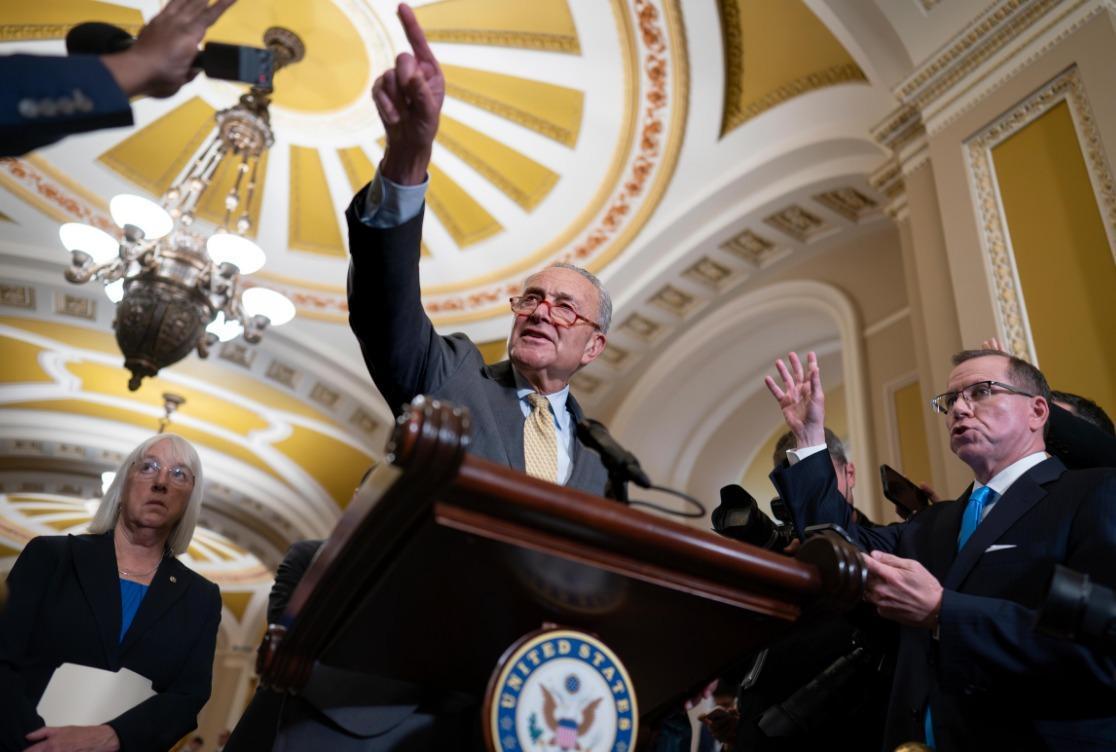
The United States is less than two weeks away from a potential government shutdown, with the stakes increasing as lawmakers struggle to agree on a short-term spending bill.
Several budget bills are currently being discussed in Washington, but none have enough votes to clear both the Democrat-majority Senate and the Republican-controlled House of Representatives.
Lawmakers have until midnight on Sept. 30 to reach an agreement, before funding for government services is due to dry up.
Government shutdowns put at risk the finances of hundreds of thousands of workers who may be sent home without pay as parks, museums and other federal properties close.
Although policymakers are generally keen to avoid this situation, some supporters aligned with former president Donald Trump have so far opposed every bill on the table.
"With less than two weeks before the end of the fiscal year, extreme House Republicans are playing partisan games with peoples' lives," said the White House in a statement on Sept. 19.
The impasse could have repercussions on the war in Ukraine, with the White House seeking for any budget bill passed by lawmakers to include $24 billion in military and humanitarian aid for Kiev.
While such a plan is supported by Democrats and Republicans in the Senate, it is radically opposed by some members of the House.
"I will not vote to fund a single penny to the war in Ukraine, COVID anything, and the political weaponized government," said far-right Representative Marjorie Taylor Greene on X, the social media site formerly known as Twitter.
This comes as U.S. President Joe Biden is due to meet with Ukrainian President Volodymyr Zelensky in Washington later in the week.
"At the very same time that President Zelensky comes to the United States to make the case for standing firm against [Russian President Vladimir Putin], Republican leadership in the House of Representatives are essentially telling him 'You're on your own,’" said Senate Democratic Majority Leader Chuck Schumer.
The looming shutdown marks the second time in recent months that the world's top economy faces a financial gridlock.
In June, the United States narrowly avoided a possible debt default, as U.S. senators voted to suspend the federal debt limit after weeks of fraught negotiations.
A default would have been unprecedented, but the United States has had periods of shutdown before, including a 35-day stretch from late 2018 to early 2019 under former president Donald Trump, the longest in U.S. history.
A shutdown this time could "leave a visible mark on the economy," said EY chief economist Gregory Daco this week.
He estimates that "each week of government shutdown will cost the U.S. economy $6 billion," and trim GDP growth by 0.1 percentage points in the fourth quarter.
"Apart from the direct macroeconomic consequences of a shutdown, financial markets and private sector confidence could also be affected," he said.